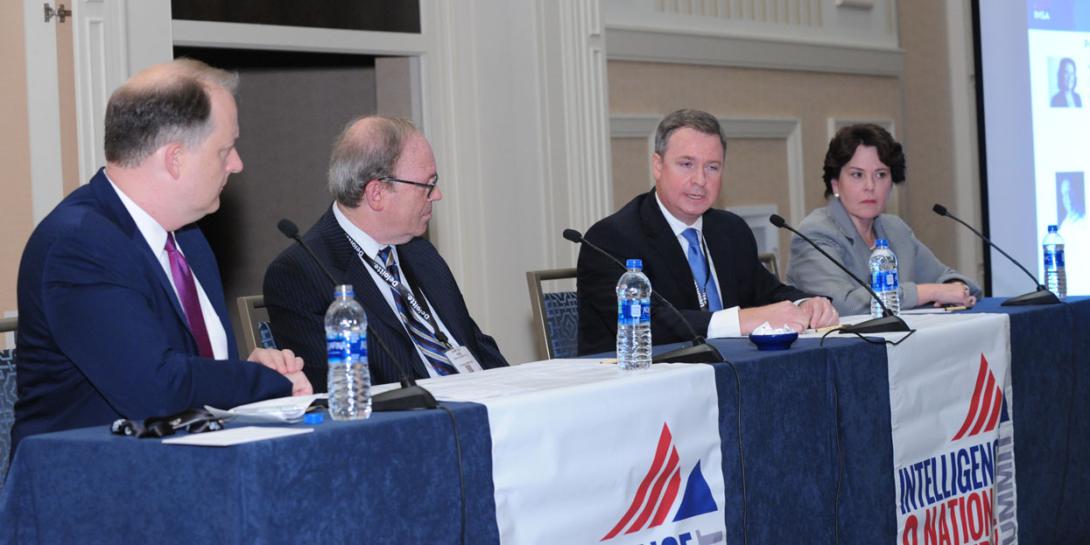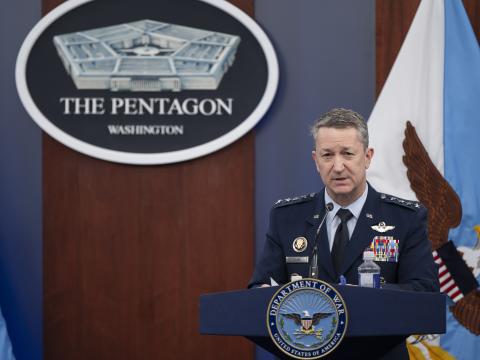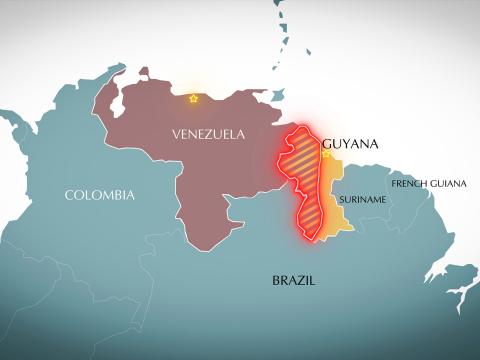Disinformation Is a Never-Ending Story
Foreign influence operations against the United States and its allies are likely to proliferate as more nations with propaganda agendas learn how to exploit social media technologies, say intelligence community experts. Russia’s attempts to interfere with the 2016 U.S. presidential election are only the tip of the iceberg, and government must learn how to work with industry to counter these efforts.
This dynamic and sensitive topic—protecting the United States from influence operations—was the focus of a breakout panel session on the second day of the 2018 Intelligence and National Security Summit sponsored by AFCEA International and INSA at National Harbor, Maryland. The dynamic nature comes from the changing characteristics of mass and social media; its sensitivity owes to the conflict of government media management in a free-speech democracy. Panelists agreed that the United States must fight foreign disinformation, but they agreed no single solution will suffice in this changing arena.
Joe Morosco, assistant director, Office of the National Intelligence Manager for Counterintelligence, ODNI, pointed out that it’s not just Russia that is waging a war of influence in other countries. For example, China invests billions in a global media apparatus designed to influence coverage of Chinese operations. “The range of actors is expanding,” he stated.
China invests billions in a global media apparatus designed to influence media coverage of Chinese operations.—Joe Morosco, assistant director, Office of the National Intelligence Manager for Counterintelligence, ODNI #intelligence2018 @ODNIgov
— Bob Ackerman (@rkackerman) September 5, 2018
Fran Moore, chief of intelligence, Financial Systemic Analysis and Resilience Center, noted that propagandizing nations largely are authoritarian regimes that learned their craft in dealing with their own internal populace. “This is an evolution of capability that has its roots in pen and paper,” she said.
[The influencers] are largely authoritarian regimes that learned their craft in dealing with their own internal populace. This is an evolution of capability that has its roots in pen and paper.—Fran Moore, Financial Systemic Analysis and Resilience Center #intelligence2018
— Bob Ackerman (@rkackerman) September 5, 2018
People all over the world are susceptible to manipulation, noted Rand Waltzman, senior information scientist, The Rand Corporation. He related how Russian disinformation dates back to the time of the Bolshevik revolution, and it has continued unabated over the decades. What used to be difficult and expensive has become easy and cheap with the advent of the new information age. “What the Russians have realized is that, in this current information environment, the opportunities to do this kind of work have multiplied fantastically,” he declared.
What the Russians have realized is that, in this current information environment, the opportunities to do this kind of [disinformation] work have multiplied fantastically.—Rand Waltzman, senior information scientist, The Rand Corporation #intelligence2018
— Bob Ackerman (@rkackerman) September 5, 2018
Mitigating the effect of foreign influence will require a public-private partnership, but roles remain to be defined, panelists offered. Morosco stated that it is important to inform the public about not only the types of activities, but also the intent. “We need to find more ways of doing that, devoid of political consideration,” he declared.
It’s important to inform the public about not only the types of activities, but the intent—we need to find more ways of doing that, devoid of political consideration.—Joe Morosco,assistant director,Office of the National Intelligence Counterintelligence,@ODNIgov #intelligence2018
— Bob Ackerman (@rkackerman) September 5, 2018
Waltzman compared the importance of government countermessages to the U.S. propaganda effort during World War I, which sent volunteers into movie houses to speak in favor of the war during reel changes and intermissions. “If the government wants to get the word out about this [disinformation], it has to get down to where the people are,” he stated. Currently, the only part of government doing that is President Trump with his Twitter stream, he added.
If the government wants to get the word out about this [disinformation], it has to get down to where the people are.—Rand Waltzman, senior information scientist, The Rand Corporation #intelligence2018
— Bob Ackerman (@rkackerman) September 5, 2018
Morosco said the ODNI has taken a number of steps to improve its information sharing posture within government to identify and understand disinformation threats better. It also has improved its outreach to the private sector. Yet government must limit some of its activities, he posited.
“The intelligence community cannot be the arbiter of truth about what’s posted on social media,” Morosco declared.
Moore expressed reluctance to having government regulate private sector information organizations. However, she acknowledged that some form of guidelines may need to emerge from government if the private sector doesn’t take necessary steps to curb foreign influence.
Some called for active measures against foreign propagandists. Morosco said the United States should employ a variety of tools—all of the government’s instruments of power using a whole of government approach—to deter future disinformation activities. Waltzman was blunt: “The Russians continue to do this because they get no pushback. If they ever got real pushback, then we would see what happens.”
Joe Morosco, Office of the National Intelligence Manager for Counterintelligence, @ODNIgov, says we should employ a variety of tools, all of our instruments of power using a whole of government approach, to deter future disinformation activities. #intelligence2018
— Bob Ackerman (@rkackerman) September 5, 2018
Whatever the outcome of the public-private partnership, the fight against foreign disinformation will continue for the foreseeable future. “We are in a period of social upheaval, and we will come out on the other side changed,” Moore declared.





Comment
In the article you say "the
In the article you say "the fight against foreign disinformation will continue for the foreseeable future." However, the reality is that so far there is no fight. A real fight requires two combatants - not simply one attacking while the other just stands there and whines. If somebody punches you and you just stand there and take it without any reaction other than saying "you are not a nice guy because you punched me!", you can't call that a fight. But that is precisely where we are relative to our adversaries in the disinformation/influence operations space. The $64,000 question is, what is it going to take to get us to punch back?
Dear Mr. Waltzman,
Dear Mr. Waltzman,
Like you, I had an immediate reaction when reading this article. Perhaps the $64,000 question is, "What is it going to take to get us to punch back?" But I think the $100,000 question is, "How do we avoid the punch in the first place?"
Comments